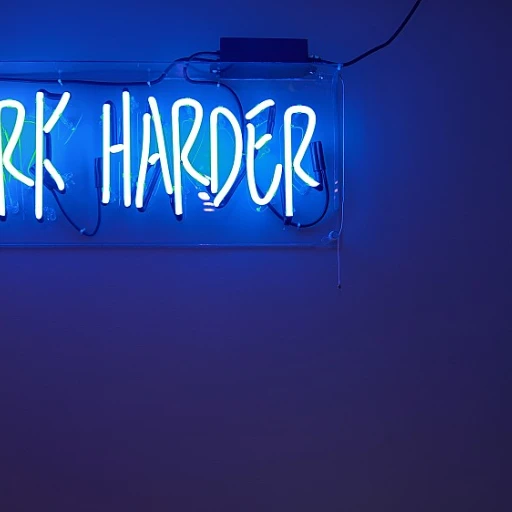
Understanding the Role of Screening Questions
Key Role of Screening Questions in Recruitment
Screening questions serve as a vital component in the recruitment process, functioning as a preliminary gatekeeper in evaluating potential candidates. Their primary role is to streamline the process by identifying those candidates who possess the fundamental qualifications and skills for the position. By effectively utilizing these questions, hiring managers can save an immense amount of time and resources by quickly narrowing down the pool of applicants to the top candidates who are most aligned with the job requirements. The right screening questions can significantly enhance the effectiveness of phone or in-person screening interviews by providing crucial insights into a candidate's experience and potential fit within the company culture. They are often used during phone screens to assess cultural fit and gauge the candidate's understanding of the role, company values, and desired work environment. This pre-screening step is essential to create a smooth flow within the entire interview process and ensure that only the best-suited candidates proceed to the next phases. To elevate the quality of candidate assessment, crafting the best screening questions demands an understanding of the specific role's requirements and the company's expectations. Beyond merely focusing on technical skills, these questions should also reveal insights about the candidate's management style and possible alignment with the organization's goals. For a comprehensive exploration of how to craft effective interview questions tailored to various candidate profiles and job roles, you may want to check out this resource on crafting effective interview questions for candidates.Types of Screening Questions
Varied Approaches to Screen Candidates
Creating an effective set of screening questions can significantly streamline the hiring process. To start, it's essential to recognize the types of screening questions that can be included in a candidate's journey. Understanding this will help you tailor questions to match the company's needs and align with the specific role in question.
Basic Fit Questions: These are designed to assess if a candidate meets the minimum criteria for the role, such as years of relevant work experience or specific technical skills they must possess. These questions are perfect for the early stages of the interview process, where a hiring manager seeks to quickly filter through candidates who do not meet the basic qualifications.
Behavioral Questions: These types of questions allow hiring managers to assess a candidate’s past behavior and predict their future performance. Examples of this could include asking the candidate to describe how they handled a challenging work situation or how they typically operate within a team-oriented work environment. Behavioral questions give insight into how a candidate's experiences may fit with the company culture and management style.
Open-ended Questions: Used often in phone screenings, these questions help elaborate on a candidate’s thought process and decision-making skills. They are typically used when the role demands creativity or strategic thinking. An example might be, “What strategies do you use to manage your time effectively?” This not only assesses their ability to self-manage but also their potential alignment with the organizational workflow.
Close-ended Questions: These are quick, straightforward questions that are fantastic for assessing specific facts quickly. By integrating close-ended questions, hiring managers can efficiently gather information on the prerequisite knowledge or the candidate’s flexibility with aspects like the salary range or job location.
These varied approaches help in distinguishing top candidates for roles and can be crucial aids during screening interviews. If you want to delve deeper into crafting effective pre-screening interview questions, you can read more in this comprehensive guide.
Crafting Questions for Different Roles
Adapting Screening Questions to Specific Job Positions
Crafting the right screening questions is pivotal in the recruitment process, especially when considering the varied roles within a company. Each position demands a unique set of skills and attributes; hence, tailoring interview questions to suit specific roles is of utmost importance. When designing screening questions for a particular job, it's essential to understand the key responsibilities and competencies required for that role. For instance, a technical position may require questions that assess problem-solving skills, while a customer service role might focus on communication abilities and empathy. Utilizing role-specific scenarios in your questions can help reveal how candidates apply their skills in practical situations. This approach also aligns with assessing the work environment's needs, which can further ensure the best fit for both the company and the candidate. Moreover, considering the nuances of each position involves understanding the cultural fit within the team and company. Questions that delve into a candidate's adaptability to the management style and company culture can greatly aid in evaluating their potential contribution. For example, questions like "Can you describe a time when you had to adapt to a significant change at work?" can provide insights into a candidate's flexibility and cultural alignment. Another facet involves the level of seniority associated with the role. For higher-level positions, it might be beneficial to focus on leadership and strategic thinking through questions that assess experience in management and decision-making capacities. Conversely, entry-level positions might prioritize questions related to eagerness to learn, basic skills, and salary range expectations. Incorporating these strategies into the screening interview process ensures that your questions are not only relevant but also foster an efficient and effective selection of top candidates. This tailored approach will significantly enhance the overall quality of the interview process, leading to higher success rates in the hiring process. For more insights on effectively launching recruitment strategies, consider launching your own staffing agency.Balancing Open-Ended and Close-Ended Questions
Striking the Right Balance Between Different Question Types
In the screening interview process, crafting the right screening questions is essential to distinguish top candidates from the crowd. Striking a balance between open-ended and close-ended questions during a phone interview or in-person meeting is crucial, as it can greatly impact the quality of the candidate’s responses and your overall assessment.
Open-ended questions are valuable tools for understanding a candidate's experience, skills, and how they perceive the role they are applying for. These questions encourage candidates to elaborate on their past job performance, achievements, and problem-solving abilities. For instance, asking a candidate to "describe a challenging work environment you've thrived in and how it prepared you for this position" can provide insights into their adaptability and cultural fit within your company.
On the other hand, close-ended questions are designed to obtain specific information and can be useful in determining if a candidate meets the necessary requirements for the position. These questions help assess whether a candidate possesses certain qualifications or skills, such as "Do you have experience with our preferred project management software?" or "Are you comfortable adhering to a salary range in line with this role?"
The key is to combine these approaches throughout the interview and screening process, allowing candidates to demonstrate their qualifications while ensuring that critical criteria are promptly addressed. This strategy not only saves time during the hiring process but also improves your ability to make informed decisions based on candidates who have been rigorously evaluated.
While open-ended and close-ended questions are both integral to the screening interview, the balance lies in knowing when each type will yield the best results. By integrating a blend of both, you can enhance the effectiveness of your interview questions and ensure a seamless interview process for both the interviewer and the candidate.
Avoiding Common Pitfalls
Steering Clear of Common Screening Blunders
The screening interview process can be a pivotal moment in the overall hiring journey, but even with the best intentions, pitfalls can arise. Recognizing and avoiding these common mistakes can be instrumental in filtering out top candidates efficiently while aligning them with your company's needs.
One frequent misstep is designing questions that are too generic, failing to tease out specific skills and experience relevant to the job position. Pre-screening questions should cater specifically to the role and reflect the work environment and culture of the company. Tailored questions help interviewers distinguish between candidates who are a genuine fit for the role and the company culture.
Another pitfall to dodge is the overload of questions, especially in an initial phone screening. While it’s tempting to gather as much information as possible, overburdening candidates with too many questions can lead to superficial answers. Focusing on core competencies and the key responsibilities of the position ensures that the screening remains productive.
Watch out for over-reliance on close-ended questions, which might not give candidates the opportunity to showcase their thought process and problem-solving skills. Balancing these with open-ended questions lets candidates express their management style, cultural fit, and adaptability to dynamic work environments.
It’s crucial to remember that inconsistencies in questioning styles can skew the interview process. Ensuring all candidates undergo a similar type of screening questions ensures a fair and unbiased assessment. This allows hiring managers to compare responses effectively and make sound decisions based on comparable data.
Lastly, ensuring clarity in questions avoids ambiguity and saves valuable time for both interviewers and candidates. Clear, direct questions help in evaluating whether candidates meet the required criteria such as salary range expectations and career aspirations. Ultimately, steering clear of these common pitfalls paves the way for a seamless hiring process that identifies the best talent efficiently.
Evaluating Candidate Responses
Assessing Candidate Reactions
Evaluating candidate responses during the screening process is a pivotal step in the hiring journey. This stage helps determine not just the skills and experience required for the job, but also insights into how well a candidate aligns with the company's culture and management style. Understanding the nuances in their answers will assist hiring managers and HR professionals in identifying the best fit for the position. During the phone screen, it's essential to focus not only on what candidates say but also on how they say it. Tone, enthusiasm, and thought processes can provide clues about their potential fit within your work environment. Consider the following aspects when evaluating responses:- Consistency and Clarity: Are the candidates consistent in their responses? Clarity in explaining their skills and prior work experiences is crucial.
- Relevant Work Experience: Match their previous job tasks (mentioned in their answers) with the role's requirements. This will help determine their suitability for the position.
- Problem-Solving and Critical Thinking: Pay attention to how candidates tackle open-ended questions. Their approach can reveal their problem-solving skills and adaptability.
- Cultural Fit and Management Alignment: Look for indications of alignment with your company culture and management style. For instance, their thoughts on teamwork can reflect if they are capable of thriving in your company.
- Enthusiasm and Interest in the Role: How interested are they in the position and the company? Enthusiasm often indicates motivation, which can be a significant predictor of job performance.













